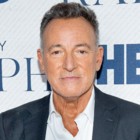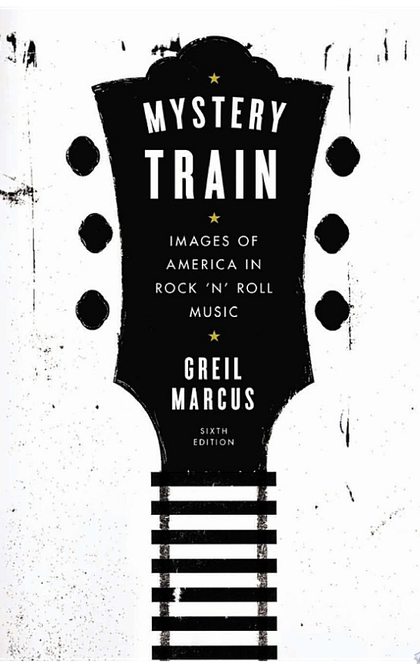
Bruce Springsteen's Favorite Books - Part 2
0
likes
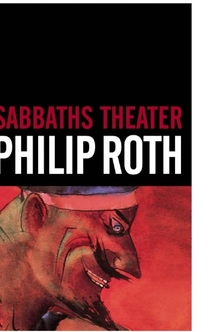
Sabbaths theater
Sabbaths theater is een van de meest gedurfde romans in het oeuvre van Philip Roth: choquerend, meedogenloos en weergaloos grappig. Mickey Sabbath, een diabolische en scandaleuze poppenspeler, vereert ontucht als principe en is op vierenzestigjarige leeftijd nog even vijandig als altijd. Hij heeft een heftige, erotische relatie met Drenka, de wellustige vrouw van een Joegoslavische hotelhouder. Sabbath raakt volledig uit zijn doen als zij plotseling aan kanker sterft. Beroofd van zijn Drenka wordt hij belegerd door de geesten van hen die hem het meest hebben liefgehad of gehaat, en hij begint een wanhopige zoektocht in zichzelf en naar zijn verleden.
See all

American Pastoral
Now a major motion picture based on Philip Roth's Pulitzer Prize-winning masterpiece American Pastoral, starring Ewan McGregor and Jennifer Connelly‘Swede’ Levov is living the American dream. He glides through life sustained by his devoted family, his demanding yet highly rewarding (and lucrative) business, his sporting prowess, his good looks. He is the embodiment of thriving, post-war America, land of liberty and hope. Until the sunny day in 1968, when the Swede’s bountiful American luck deserts him. The tragedy springs from devastatingly close to home. His adored daughter, Merry, has become a stranger to him, a fanatical teenager capable of an outlandishly savage act of political terrorism that plunges the Levov family into the political mayhem of sixties America, and drags them into the underbelly of a seemingly ascendant society. Rendered powerless by the shocking turn of events, the Swede can only watch as his pastoral idyll is methodically torn apart.
See all
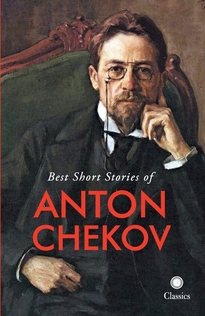
Chekhov: Selected Short Stories
Anton Chekhov has long been regarded as the master of the Russian short story and one of the leading exponents of the genre in world literature. This volume comprises the classic selection edited by Birkett and Struve, in Russian, here furnished with a new bibliography, and complements the stories and plays by Chekhov already available in the BCP Russian Texts series. The twelve stories, which date from 1883 to 1896, range from miniatures of comic levity such as Tolsttyi i tonkii to stories of sophisticated maturity such as Dom s mezoninom. The stories included are as follows (titles given in English translation): Fat Man and Thin Man; The Boys; A Test for Rank; A Failure; A Little Joke; The Blank Catch; The Beauties; The Student; At Yuletide; An Incident in Practice; Anna Round the Neck; The House with the Mezzanine.
See all

The Lay of the Land
NATIONAL BESTSELLERNational Book Critics Circle Award FinalistA New York Times Best Book of the YearA sportswriter and a real estate agent, husband and father –Frank Bascombe has been many things to many people. His uncertain youth behind him, we follow him through three days during the autumn of 2000, when his trade as a realtor on the Jersey Shore is thriving. But as a presidential election hangs in the balance, and a postnuclear-family Thanksgiving looms before him, Frank discovers that what he terms “the Permanent Period” is fraught with unforeseen perils. An astonishing meditation on America today and filled with brilliant insights, The Lay of the Land is a magnificent achievement from one of the most celebrated chroniclers of our time.Also available in the Bascombe Trilogy: The Sportswriter, and Independence Day
See all
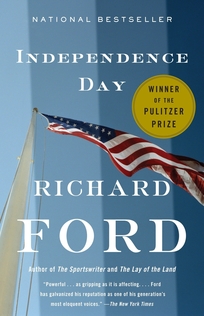
Independence Day
1. You may have laughed out loud while reading Independence Day . Possibly the novel's serious purpose came as a surprise. What is the temper of Frank Bascombe's interior monologue as opposed to that of the novel's themes? How is Ford's pervasive use of humor integral to his development of plot and theme? 2. Haddam, New Jersey, is introduced as idyllic, but reality soon counters the idyll. How does Independence Day 's catalog of past and present Americana juxtapose the ideal and the real? Does the novel express the American character? 3. Frank Bascombe believes he is 'more or less normal-under-the-microscope' [p. 7]. But his ex-wife, Ann, says he may be 'the most cynical man in the world' [p. 184]. Sally, his girlfriend, finds him 'too smooth' and 'noncommittal' [p. 272]. What kind of person is Frank? Does his profession suit him? He says, 'I'm no hero' [p. 438]. In what ways is he heroic? 4. Frank labels Ann a 'bedrock literalist' [p. 103]. Sally, he says, lives 'a life played out in the foreground' [p. 153]. Does he perceive these women fairly? Are they alike? Unlike? Do they understand him? 5. How would you answer Paul when he says, 'Don't you really think something's wrong with me' [p. 328]? How does his accidental 'detachment' [p. 374] describe his problem? Is Clarissa also affected by the divorce? How does the novel mourn the loss of the nuclear family? 6. When Frank met Karl Bemish along the road, he decided to help him. What American characteristics does this 'old nostalgian' [p. 136] typify? What does the rescue and rehabilitation of the hot dog stand signify? 7. The Markhams suffer from regret, indecision, inability to act, isolation, and a 'current predicament of homelessness' [p. 55]. Should they be content at 212 Charity with a prison beyond the backyard fence? Should they stay permanently in a motel? Will they find solace in Frank's 'colored rental' [p. 406]? Are they 'out-of-the-ordinary white folks' [p. 423] in their racial outlook? How representative of Americans are they? 8. Of what narrative and thematic significance is the murder at the Sea Breeze Motel? Why are Frank and Tanks 'unable to strike a spark' [p. 216]? What is the cause, and function, of Frank's remorse at the end of Chapter 6? Do you think the weekend journey has both literal and symbolic levels? 9. Which dictionary definition of 'sanctuary' would you apply to the Deep River Bird Sanctuary: shrine, refuge, or protection? How else does the novel examine these forms of sanctuary? 10. 'Do you believe in progress, Bascombe?' [p. 113] asks old man Schwindell. How does Frank come to define 'progress?' Do the weekend's events chronicle Frank's spiritual growth as a kind of 'progress'? What stages does he pass through from Haddam to Cooperstown? 11. What does the Baseball Hall of Fame represent to America and to Independence Day? How is Cooperstown a 'replica' [p. 293]? What is Frank's objection to simulation? 12. Irv appears out of the blue when Paul is struck. Who is Irv? How does he minister to Frank? What problem does he express when he says, 'I feel like some bad feeling is sort of eating away at me on the edges' [p. 389]? How do people like Irv fare in today's world? Does the photo in his 'tiny wafer wallet' [p. 391] sanctify family? Does Frank accept Irv's invitation to return to family status? When Ann and Irv mouth 'hope' together [p. 402], is Frank's spiritual journey advanced? 13. How is Paul's accident a catalyst for change? Is change 'conversion'? How does Paul's eye injury alter Frank's vision? Consider 'blindness' as metaphor. What vision does the author seek to restore? 14. Frank's imaginary syllabus topic, 'Reconciling Past and Present: From Fragmentation to Unity and Independence' [p.259], might describe the trip's (and the novel's) goal and result. Is reconciliation accomplished? 15. 'I don't believe in God' [p. 432], Frank insists. Does this mesh with the Christian tone of his thinking, his journey, and the novel? Karl answers, 'You seem one way and are another.' In what way does Ford similarly craft both character and novel? 16. Real estate is a central metaphor in Independence Day . Who are the metaphorical tenants and landlord? Is any form of shelter not described? Which characters seek shelter? Is it structure or solace? Does Frank really believe 'place means nothing' [p. 152]? Which of the novel's many 'mansions' does Ford recommend? What is suggested by Frank's comment: 'What more can you do for wayward strangers than to shelter them' [p. 424]? Frank's former mansion is now an Ecumenical Center. In what sense is the novel also ecumenical? 17. Consider definitions of 'independence.' Is there irony in being 'free to make new mistakes' [p. 60]? What does Independence Day really mean for Frank? 18. At novel's end, Frank says to an unidentifed phone caller, 'Let me hear your thinking' [p. 451]. Does it matter who the caller is? What might Frank's response indicate about his thinking? 19. In 1776, John Adams wrote of Independence Day, 'It ought to be solemnized with pomp and parade, with shows, games, sports, guns, bells, bonfires, and illuminations, from one end of this continent to the other...' How does Ford's novel meet all of Adams's requirements? With its varied allusions to light, what source of 'illumination' does Independence Day offer to modern America?
See all

The Sportswriter
As a sportswriter, Frank Bascombe makes his living studying people--men, mostly--who live entirely within themselves. This is a condition that Frank himself aspires to. But at thirty-eight, he suffers from incurable dreaminess, occasional pounding of the heart, and the not-too-distant losses of a career, a son, and a marriage. In the course of the Easter week in which Ford's moving novel transpires, Bascombe will end up losing the remnants of his familiar life, though with his spirits soaring.
See all

History of Western Philosophy
First published in 1946, History of Western Philosophy went on to become the best-selling philosophy book of the twentieth century. A dazzlingly ambitious project, it remains unchallenged to this day as the ultimate introduction to Western philosophy. Providing a sophisticated overview of the ideas that have perplexed people from time immemorial, it is 'long on wit, intelligence and curmudgeonly scepticism', as the New York Times noted, and it is this, coupled with the sheer brilliance of its scholarship, that has made Russell's History of Western Philosophy one of the most important philosophical works of all time.
See all
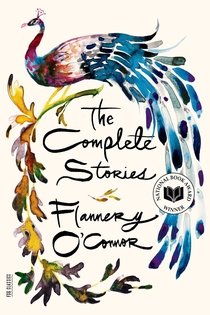
Complete Stories
This is the complete collection of stories from one of the most original and powerful American writers of the 20th century. Including 'A Good Man is Hard to Find' and 'Everything That Rises Must Converge', this collection also contains several stories only available in this volume.
See all
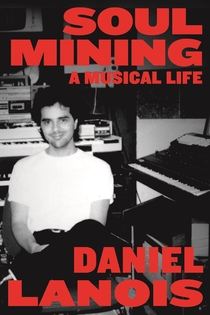
Soul Mining
Bob Dylan, Willie Nelson, Emmylou Harris, U2, Peter Gabriel, and the Neville Brothers all have something in common: some of their best albums were produced by Daniel Lanois. A French-speaking kid from Canada, Lanois was driven by his innate curiosity and intense love of music to transcend his small-town origins and become one of the world's most prolific and successful record producers, as well as a brilliant musician in his own right. Lanois takes us through his childhood, from being one of four kids raised by a single mother on a hairdresser's salary, to his discovery by Brian Eno, to his work on albums such as U2's The Joshua Tree, Bob Dylan's Time Out of Mind, and Emmylou Harris's Wrecking Ball. Revealing for the first time ever his unique recording secrets and innovations, Lanois delves into the ongoing evolution of technology, discussing his earliest sonic experiments with reel-to-reel decks, the birth of the microchip, the death of discrete circuitry, and the arrival of the download era. Part technological treatise, part philosophical manifesto on the nature of artistic excellence and the overwhelming need for music, Soul Mining brings the reader viscerally inside the recording studio, where the surrounding forces have always been just as important as the resulting albums. Beyond skill, beyond record budgets, beyond image and ego, Lanois's work and music show the value of dedication and soul. His lifelong quest to find the perfect mixture of tradition and innovation is inimitable and unforgettable.
See all

Brothers Karamazov
In 1880 Dostoevsky completed The Brothers Karamazov, the literary effort for which he had been preparing all his life. Compelling, profound, complex, it is the story of a patricide and of the four sons who each had a motive for murder: Dmitry, the sensualist, Ivan, the intellectual; Alyosha, the mystic; and twisted, cunning Smerdyakov, the bastard child. Frequently lurid, nightmarish, always brilliant, the novel plunges the reader into a sordid love triangle, a pathological obsession, and a gripping courtroom drama. But throughout the whole, Dostoevsky searhes for the truth--about man, about life, about the existence of God. A terrifying answer to man's eternal questions, this monumental work remains the crowning achievement of perhaps the finest novelist of all time.From the Paperback edition.
See all
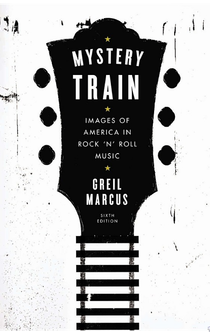
Mystery Train
The perfect gift for music fans and anyone who loves artists like Elvis Presley, Randy Newman, Sly Stone, Robert Johnson, and Harmonica Frank.In 1975, Greil Marcus’s Mystery Train changed the way readers thought about rock ’n’ roll and continues to be sought out today by music fans and anyone interested in pop culture. Looking at recordings by six key artists—Robert Johnson, Harmonica Frank, Randy Newman, the Band, Sly Stone, and Elvis Presley—Marcus offers a complex and unprecedented analysis of the relationship between rock ‘n’ roll and American culture. In this latest edition, Marcus provides an extensively updated and rewritten Note and Discographies section, exploring the recordings’ evolution and continuing impact.
See all
